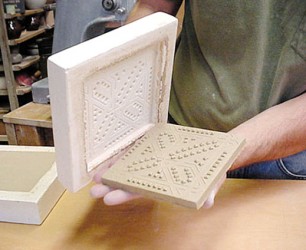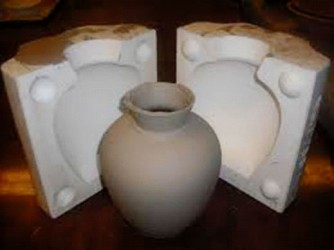Local ceramic and pottery craft producers are to benefit from professional instruction in modern techniques for mould design and manufacturing through a workshop being delivered by the Caribbean Technology Consultancy Services (CTCS) Network in consultation with the Georgetown Chamber of Commerce and Industry (GCCI).
Stabroek Business has learnt that 30 persons who are actively involved in pottery and other forms of craft and who operate businesses locally will benefit from a three-week instructional programme beginning on May 18.
GCCI President Lance Hinds told Stabroek Business earlier this week that the workshop reflected “the sorts of practical initiatives which the Chamber seeks to take to respond directly to challenging issues facing enterprises in the various sectors. In this instance it is a matter of equipping local craftspeople with production methods that will increase volumes, lower production costs and result in more competitive prices.

The instructional workshop seeks to develop the skills of participants to a level where they can further grow the market share for their creations in the region and beyond.
The planned outcomes of the project, the Chamber official said, are to help participating craft producers “adopt modern techniques to design and manufacture moulds, exhibit improved operating performance” and ensure that gender equality and equity issues are addressed within the arts and craft sector.
The Chamber says the project is being executed against the backdrop of the export market which local producers are seeking to further penetrate and which requires large quantities of product at any one time and at competitive prices.
Hinds says “traditional production methods make it difficult to meet these requirements” and that by utilizing modern techniques that employ moulds artisans can manufacture much greater numbers of pieces within a short space of time.
To create a mould a model of the desired design piece is first developed using either clay, glass or metal. A plaster-of-Paris mixture is then poured over the model in a contained box and once the plaster has air-dried and hardened the model is removed to reveal the mould which can be utilized hundreds of times before it has to be replaced.
Export demand for local ceramic and pottery products has increased in recent years.
A paper made available to this newspaper by the GCCI indicates that the industry recorded a 36 per cent increase in exports in ceramic products in 2012 from 2011 and a 25 per cent increase in exports in 2013. Markets for local ceramic and pottery products have been identified in Jamaica, Trinidad and Tobago, St Lucia and Barbados. It is against this backdrop, this newspaper understands, that the Guyana Arts and Craft Producers Association (GACPA) approached the CTCS Network for assistance to conduct a training workshop on ceramic mould-making utilizing modern techniques and targeting pottery and ceramics producers in Guyana.

Additionally, local artisans can only manufacture one piece at a time. As a result, the prices at which they can sell these pieces are not competitive compared with the prices of their international competitors.
The Chamber says that by attempting to reduce the cost of production and increase the efficiency of the production process the capacity to meet the quantities demanded by the export market will be improved.
Local producers who have related experiences of participating in international trade fairs have complained about difficulties associated with producing volumes of craft and ceramic products to meet consumer demand and the forthcoming workshop is seen here as a vehicle that can help overcome that problem.
Meanwhile, the CTCS Network will undertake a gender analysis of the arts and craft sector in Guyana as part of the workshop with the aim of identifying the opportunities and challenges facing each gender within the sector.





